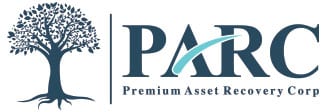Understanding Medical Debt Collections: A 2024 Guide for Healthcare Providers

2024 Strategies for Negotiating and Settling Medical Debt
December 13, 2023
How Medical Debt Buyers Determine the Value of Debt Portfolios: A Deep Dive
December 26, 2023Introduction
For medical providers, the realities of medical debt collections are more than just a financial concern; they represent a balance between patient care and sustainable business operations. As medical debts mount, they strain not only the financial well-being of healthcare facilities but also impact their capacity to deliver quality medical services. Effective management of this debt is essential in today’s healthcare environment, where efficient revenue cycle management (RCM) is vital.
At Premium Asset Recovery Corporation (PARC), we understand the complexities of medical debt collections. Every aspect demands careful consideration and a strategic approach, from handling self-pay accounts to engaging in non-recourse debt buying. We aim to simplify this process for healthcare administrators, offering insights that align with regulations, embrace best practices, and benefit providers and patients.
In the subsequent sections, we will delve into the various facets of medical debt collections, aiming to provide a comprehensive guide for medical practitioners and administrators.
Overview of the Collections Process in Healthcare
The collections process in healthcare is a multifaceted and sensitive operation, vital for the financial health of medical practices. Understanding this process is essential for healthcare providers and administrators. Let’s explore each step individually:
Identifying Outstanding Debts
The process begins with identifying outstanding debts. This involves meticulous record-keeping and patient account management. It’s crucial to accurately track services rendered, patient billing details, and any partial payments or adjustments made.
Patient Communication and Billing
Once debts are identified, the next step is patient communication. This is a critical stage where clarity and empathy are paramount. Providers must inform patients of their outstanding balances, ideally through multiple channels like mail, email, or phone calls. By utilizing several channels of communication patients can choose the method they are most comfortable with. Because of this, patients are more likely to respond.
Clear, concise, and compassionate communication can significantly impact the success of the collections process.
Negotiation and Payment Plans
In many cases, patients might be unable to pay their bills in full. In these cases, negotiation plays a key role. Offering flexible payment plans or negotiating a reduced settlement amount can be effective strategies. This not only helps in recovering debts but also maintains a positive relationship with patients.
Involving Collection Agencies
If internal efforts are unsuccessful, involving a debt collection agency may be the next step. It’s important to choose an agency that understands the healthcare industry’s unique needs and complies with all regulatory standards, including the Fair Debt Collection Practices Act (FDCPA).
Legal Action
As a last resort, legal action might be considered for debt recovery. However, this step should be approached cautiously, considering its potential impact on patient relations and the practice’s reputation.
In each of these stages, compliance with regulations and adherence to ethical practices are non-negotiable. It’s not just about recovering debts; it’s about maintaining trust and integrity in the healthcare provider-patient relationship.
Importance of Compliance with Regulations and Best Practices
Navigating the medical debt collection process requires strict adherence to a range of regulations and best practices. This compliance is not just a legal obligation but also a moral one, ensuring that patients’ rights are respected and that the healthcare provider’s reputation is upheld.
Adhering to Legal Regulations
Key among these regulations is the Fair Debt Collection Practices Act (FDCPA), which sets standards for the treatment of debtors by third-party debt collectors. In addition, healthcare providers must comply with the Health Insurance Portability and Accountability Act (HIPAA), ensuring patient information’s privacy and security during the debt collection process.
Ethical Considerations
Beyond legal requirements, ethical considerations play a crucial role. This includes transparent billing practices, clear communication about financial obligations, and respect for patient circumstances.
Ethical debt collection practices not only foster trust but also reduce the likelihood of disputes and litigation.
Best Practices in Debt Collection
Implementing best practices in debt collection involves several strategies:
- Proactive Communication: Engaging with patients early and often about their financial responsibilities can prevent misunderstandings and overdue payments.
- Training Staff: Ensuring that staff are trained in compassionate communication and are aware of the legal and ethical aspects of debt collection.
- Offering Payment Options: Providing flexible payment plans or financial assistance programs can facilitate debt recovery while supporting patients in financial hardship.
- Regular Review and Auditing: Continually reviewing and auditing debt collection processes helps in identifying areas for improvement and ensures ongoing compliance with changing regulations.
For healthcare providers, maintaining compliance with these regulations and best practices is not just about fulfilling legal obligations. It’s about building and sustaining a responsible and patient-centric approach to financial management.
Benefits of Partnering with Reputable Debt Collection Agencies
Partnering with a reputable debt collection agency offers significant advantages for healthcare providers facing the challenges of medical debt management. These agencies bring specialized expertise and resources, ensuring a more efficient and effective approach to debt recovery.
Expertise in Medical Debt Collection
Medical debt collection agencies deeply understand the unique aspects of healthcare billing and collections. Their expertise includes navigating complex billing codes, and insurance claims processes, which are often challenging for healthcare providers to manage in-house.
This specialized knowledge leads to more successful debt recovery, directly impacting the financial health of the practice.
Streamlining Administrative Processes
The administrative burden of debt collection can be substantial for healthcare providers. Providers can significantly reduce their internal workload by outsourcing this task to specialized
agencies. This shift allows staff to focus on core healthcare services and patient care, ultimately improving the overall efficiency and effectiveness of the healthcare facility.
Ensuring Compliance with Regulations
Navigating the legal landscape of debt collection is a critical aspect of the process. Reputable agencies are well-versed in the nuances of laws such as the FDCPA and HIPAA.
Their expertise in these areas ensures that collection practices are effective and compliant with legal standards, thereby minimizing the risk of legal complications and protecting patient privacy.
Preserving Patient Relationships
Debt collection can be a sensitive issue that potentially strains the relationship between patients and healthcare providers. Professional agencies handle this delicate process with tact and diplomacy. By doing so, they help maintain the goodwill and trust that is foundational to the patient-provider relationship, ensuring that collections efforts do not negatively impact patient satisfaction and loyalty.
Leveraging Advanced Technology
Debt collection agencies often have access to advanced technology and tools that are not typically available to healthcare providers. These include sophisticated software for tracking debts, analytics for understanding payment patterns, and automated systems for communicating with patients about their debts. Utilizing these technologies can make the debt collection process more efficient, accurate, and less time-consuming.
Customized Collection Strategies
Every healthcare provider has unique needs and challenges in debt collection. A reputable agency can tailor its services to these specific requirements, offering customized solutions that best fit the provider’s situation.
This could include strategies for handling a large volume of small debts, dealing with complex high-value accounts, or providing more patient-centric collection approaches.
The benefits of partnering with a reputable debt collection agency are multifaceted, directly contributing to the financial stability of healthcare providers while upholding high standards of patient care and legal compliance.
Conclusion: Harnessing the Power of Knowledge and Expertise in Medical Debt Collections
Understanding and effectively managing the medical debt collection process is crucial for the financial health and operational efficiency of healthcare providers. The collections process, while complex, offers an opportunity to balance financial stability with compassionate patient care.
We began by exploring the overview of the collections process in healthcare, highlighting the importance of identifying outstanding debts, effective patient communication, and the potential need for legal action in certain cases. Each step of this process demands precision, empathy, and a deep understanding of the healthcare billing system.
The importance of compliance with regulations and best practices was our next focus. Adhering to legal regulations like the FDCPA and HIPAA, and implementing ethical and transparent billing practices, is not just a legal mandate but a moral obligation. It ensures the protection of patient rights and maintains the integrity of healthcare providers.
Finally, we discussed the benefits of partnering with reputable debt collection agencies. These partnerships bring expertise, reduce administrative burdens, ensure compliance, and help maintain positive patient relationships. The use of advanced technology and customized solutions by these agencies significantly enhances the efficiency and effectiveness of the debt collection process.
In essence, the medical debt collections process is a critical aspect of healthcare management. By understanding its nuances, adhering to best practices and regulations, and leveraging professional expertise, healthcare providers can navigate this path successfully.
To learn more about partnering with collection agencies, check out PARC’s contact page here!


